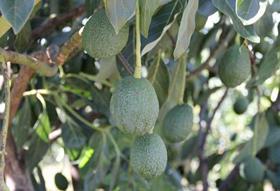
Kenyan farmers recently celebrated when president Uhuru Kenyatta signed a trade deal with his Chinese counterpart Xi Jinping in Beijing, opening the door for them to export their avocados to China.
Now that the dust has settled they have to come to terms with the fact that what they thought would be a new lucrative business is perhaps not all it seems.
The deal calls for avocados to be exported as a frozen product – and that is where the trouble starts. The cost of investment in processing and freezing plants to convert the fruit from fresh to frozen will not be easy for the Central African country to manage. It is clear that the new deal will not be implemented this year, while some observers say it may not happen at all.
Sceptics have compared the announcement to a previous China-Zimbabwe deal almost two years ago, that promised the export of 45,000 tonnes of Zimbabwean citrus to China. It is not certain whether the protocol for the handling of the fruit has been agreed yet.
When the Kenyan-Chinese deal was announced, it was envisaged that up to 40 per cent of Kenya’s avocados would end up in the Asian country, making it one of the largest importers. But having to export frozen avocados has many an avocado expert scratching their heads.
Priscilla King’angi, speaking on behalf of Kenya Fresh Produce Exporters Ltd, confirmed that the country would have to overcome significant export investment challenges to implement the deal.
Judging from the nature of the Kenyan avocado and vegetable export business, producing a frozen product may not be such a bad idea to explore. While there are a few sizeable producers and packers, there are also a large number of small producers that deliver only a few crates of fruit per day.
The same applies to vegetable exports which have done so well for these small producers in the markets of Europe and the UK. The daily harvest is collected every day by exporters in the rural regions and brought back to Nairobi where it is packed and exported within 24 hours.
Processing avocados into products with longer shelf life could make sense.
King’angi said that fresh avocados are exported to Singapore by air and sea and are doing well for the local industry.
Sea shipments have to be taken down to the port of Mombasa, from where the major portion is exported to Europe. “We are now in discussionas to how to proceed, but it is fair to say that this new avocado deal will not be implemented this year.'
In South Africa, where there is fast growing avocado business, there are various bi-products from the processed form. Frozen avocados is not one of them.
It is clear, from the latest case, that politicians eagerly sign agreements without sometimes understanding the industries, their products or the challenges that implementation would bring.
It is therefore not surprising that the Kenyans are now clambering to have the agreement and protocol revisited. Other industries with experience in dealing with China will reveal just how difficult it is to get them back to the table.






No comments yet